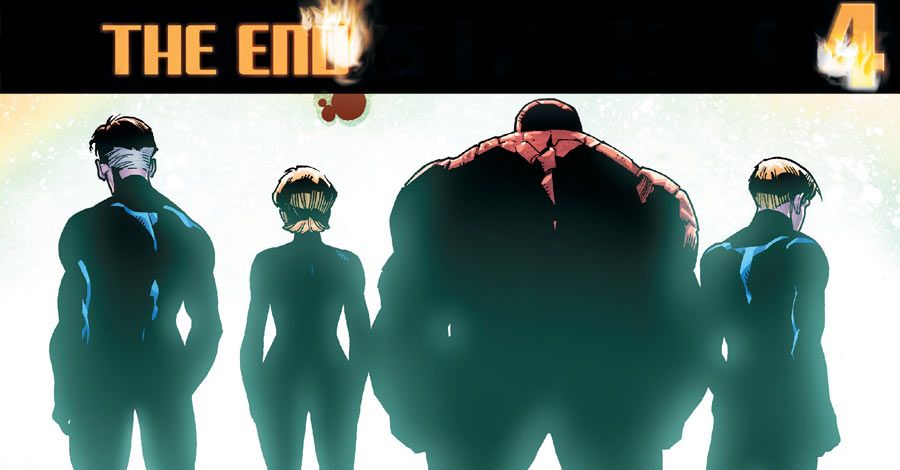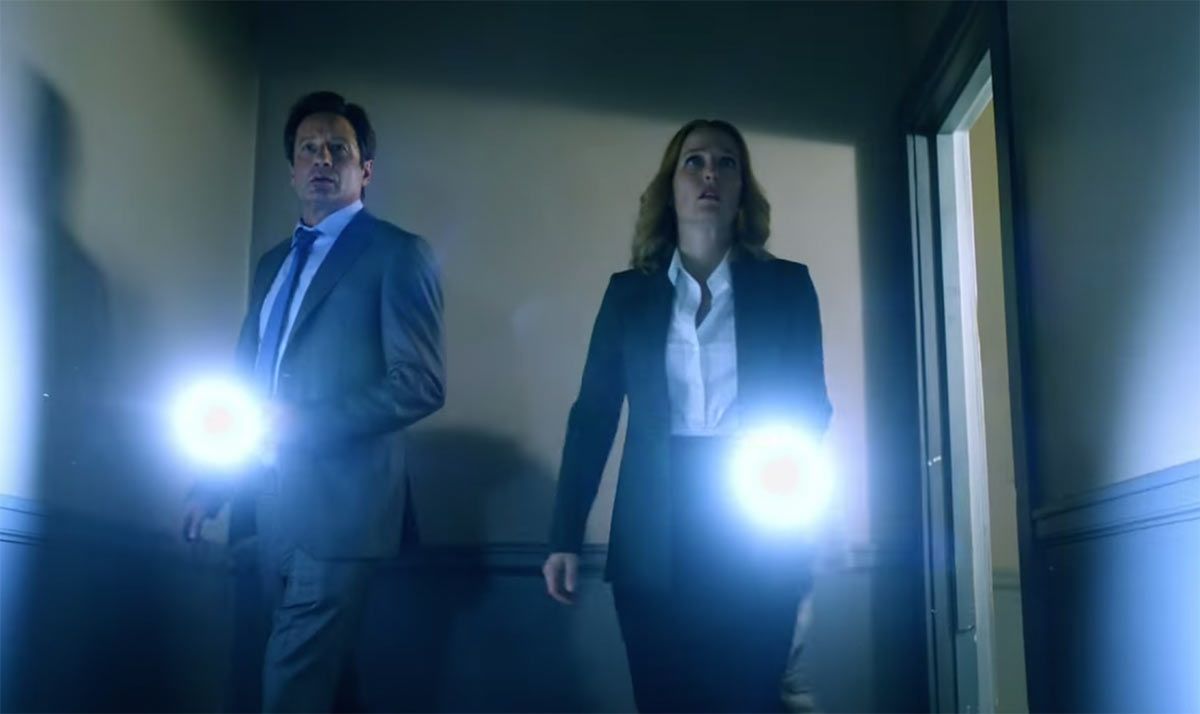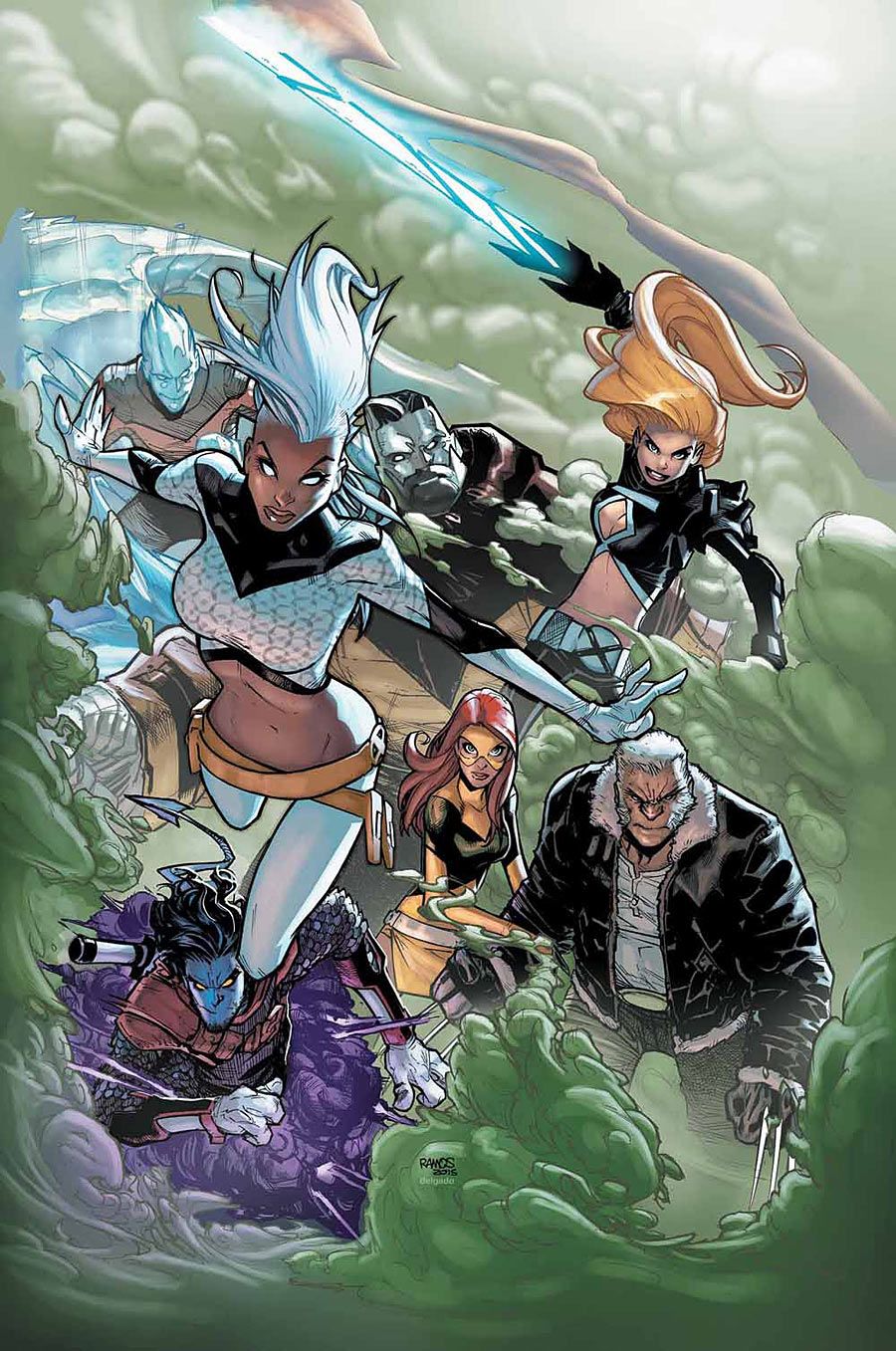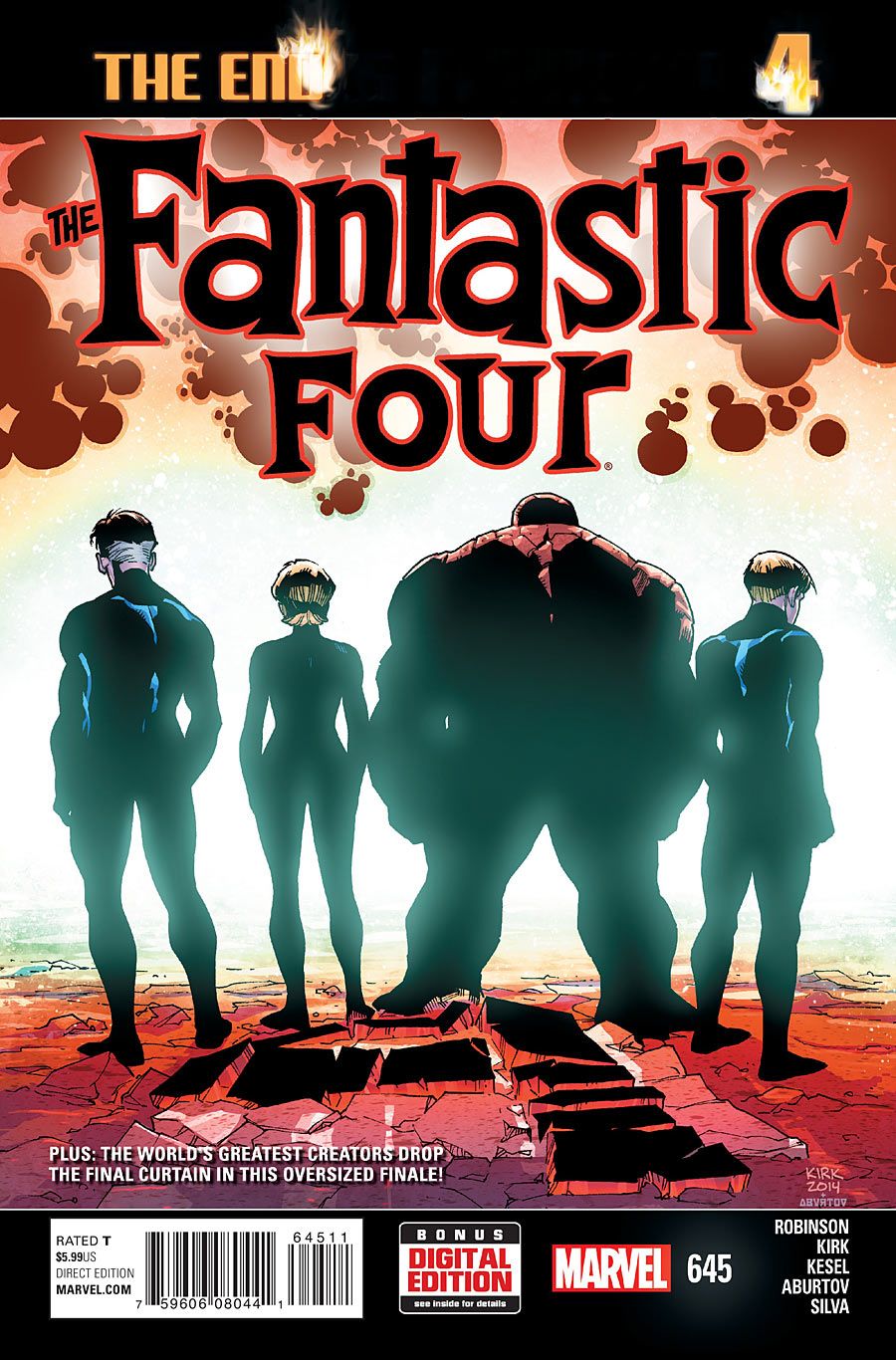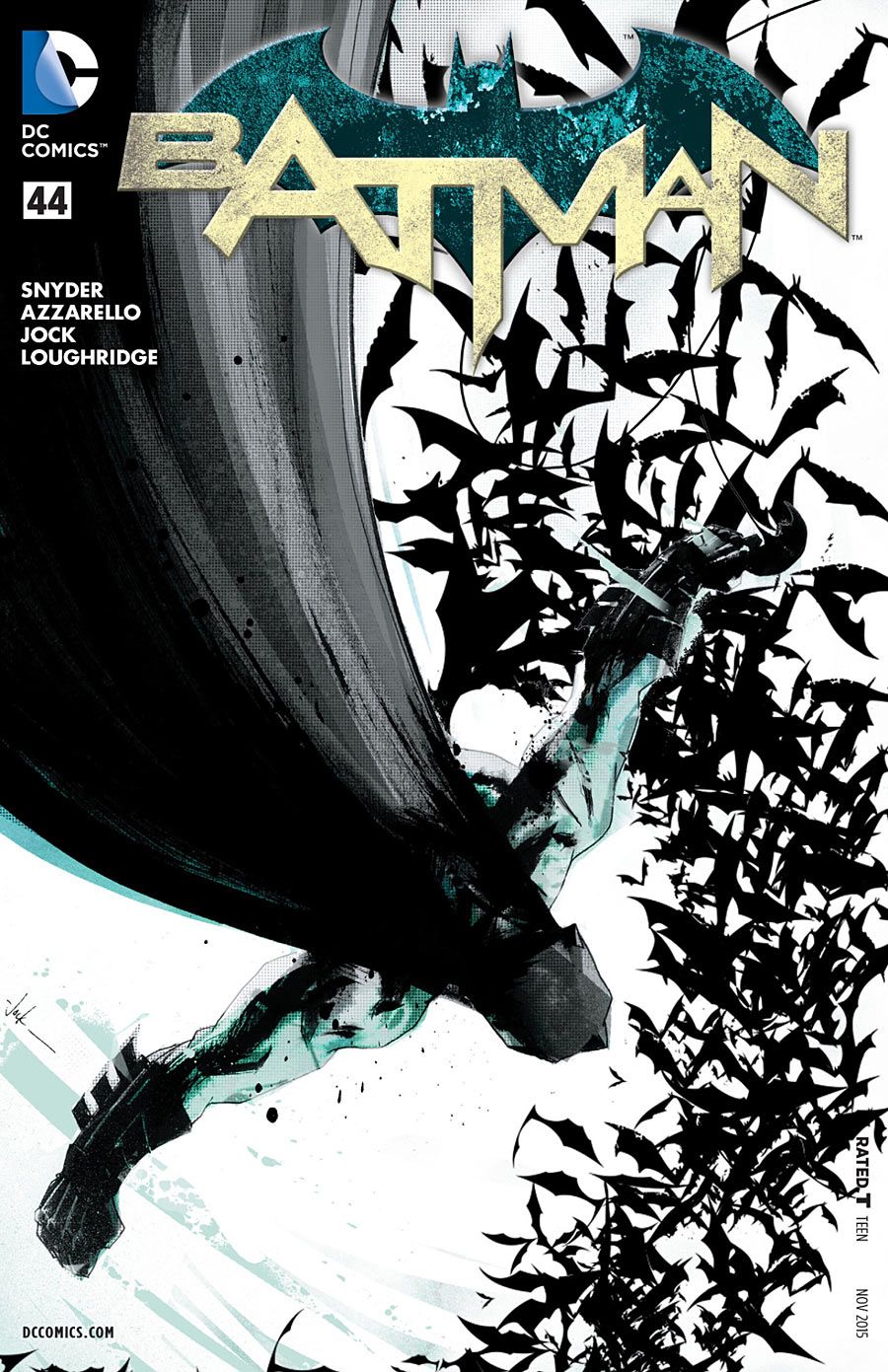We live in a culture of "more." Now, before you think I'm about to go all Andy Rooney on you with a bunch of "did you ever notice this?" curmudgeonry, let me clarify that I'm talking about superhero comics. When it comes to stories starring Wonder Woman, Spider-Man, the X-Men and pretty much everyone else that falls under the "super" umbrella, readers want their stories and they want them every month until the sun burns out. We can never get enough!
This isn't limited to comics, though; movies and television have increasingly gone back for seconds and thirds and sevenths. I typed in the word "reboot" into Google after writing that parenthetical and I see headlines for "X-Files," "Full House," "Mighty Morphin' Power Rangers," "Ghostbusters" and the "Addams Family" all focusing on sequels/remakes/hypotheticals for franchises, some thought closed. I'm now being offered the option to "stay up to date on results for reboot" by creating a Google Alert; no thanks, Google, I don't want to hit my email storage limit by the time I finish writing this piece.
I do wonder if my generation, the batch of humans born in the first half of the '80s (a more accurate descriptor than the wildly broad and ill-defined "millennial") is the last generation to remember that fiction used to have a concrete end as a rule, and that new franchises were an exception to that. I'm risking the Full Rooney here, but I think it's actually a measurable fact that pop culture nowadays is filled with franchises -- ones earned either through interest or just name recognition.
The sequel/prequel/reboot/remake phenomenon -- or, to get on thesis here, the desire for more -- has spread to television. More "X-Files," more "Arrested Development," more "Wet Hot American Summer" -- the fact that "Coach" was targeted for a (now canned) sequel series would be mind-boggling if I didn't know there was already a "Full House" one shooting episodes. No one asked for more "Full House," yet we're getting it (and I'm marathoning all of it on day one).
This didn't always happen. Franchises ended. That's never been the case with comics.
The DC headliners (Wonder Woman, Batman, Superman, the Flash, Green Lantern, etc.) are all either approaching or past 75 straight years of continuous publishing. Marvel's main characters are all passing the 50-year mark now, too. Combined, you could probably create a colorful, state-sized oceanic garbage patch with all those comics. But don't, though, because that's not good for anyone.
I'm trying to figure out why I'm content with having some of my favorite fictions be finite ("NewsRadio," "Cheers," "Golden Girls") while the idea of others not lasting forever ("X-Men," really, just "X-Men") freaks me out. What makes comics different, and why do we all assume that we need more?
This idea circulates through my head any time a series is canceled, and usually I think, "Twelve issues is a good run nowadays." This happened recently with "Omega Men," a book that at first wasn't going to get its twelve issues -- and then, apparently, fan outcry got DC to change their minds about canceling the series. Fans try to uncancel books seemingly every time one is canceled, so seeing one of those attempts actually work caused me to do a full "wha--huh?!" in public. The demand for "more" after being told we can have no more is rarely met with a changed mind and another heaping helping.
DC Comics Announces "Omega Men" to Continue Until At Least Issue #12
In the case of "Omega Men" or other books that I have personally campaigned for ("She-Hulk" and "Storm"), those are books giving fans more of something they don't have a lot of yet. They have three M&Ms and would like to make it five M&Ms, please. But in a lot of other cases, and I'm running with this metaphor, it feels like comic fans are sitting on a beanbag chair stuffed with M&Ms and also texting the big yellow M&M "u up?"
Like in the case of the X-Men in "All-New, All-Different Marvel." There are only three team books and two solo series (both starring variations on Wolverine). The line is objectively the smallest it's been in 25-ish years. But. I'm still getting three team books and two solo titles; that's not nothing. I have to be fine not having a dozen X-Men comics a month to read -- a dozen! I'm full on X-M&Ms like Templeton at the fair in "Charlotte's Web," and I'm so stumped as to why I sometimes get emotional about this that I've gone full Typhoid Mary with my metaphors. When is enough enough? After over 50 years of stories, stories I love, and -- no joke -- at least 4,000 comics with an "X" in the title, why wouldn't I be satisfied if it ended?
And I'm only using the X-Men here because they're my personal jam; you can slide in the Avengers or Superman or Batman or Thor or Iron Man or whoever of the long-running perennials into this scenario. We just can't get enough of our heroes.
This has happened with the Fantastic Four, though, and I don't wanna come across as saying, "Get over it!" to fans who lost their team while my team still has three books a month. After over 53 years, "Fantastic Four" concluded -- at least for now. I'm not here to parse that decision, but I am here to ask, are the Fantastic Four less important just because their comic only lasted 53 years and not the presumed infinity years that superhero comics apparently should run? Are FF fans going to stop liking those characters because they don't get to see the four of them interact on a monthly basis? Are new readers not going to read the John Byrne, Stan Lee/Jack Kirby, Mark Waid/Mike Wieringo or Jonathan Hickman runs just because there isn't an FF title around now? I don't think any of that's the case.
Similarly, certain segments of fandom lost their damn minds when Sam Wilson put on Captain America's colors, Jane Foster picked up Mjolnir and Doc Ock took over Spider-Man's body. Lost their minds! And pushing racism/sexism reasons aside, because a lot of that anger was unquestionably rooted in the reactions to some of those changes, fans were also mad that they weren't going to get even more Steve Rogers/Thor/Peter Parker. Why is not having a never-ending supply of new monthly stories for characters that have been around for decades so terrifying?
I've proposed a lot of questions, but I also have some conclusions. Yep, there are both good and bad sides of the "more" mentality. On the "con" column, the desire for "more" leads a lot of people to buy books they actively despise. It's a fallacy to believe that you have to consume all of a thing if it has a thing you like on/in it. That time commitment is pretty light when it comes to movies; on the balance, I only spent two-ish hours all at once watching "X-Men: The Last Stand." That's a drop in the bucket. But with comics, you're getting a new one every month, one you don't like anymore, for years in the hopes that it could get better. That collector mentality is bad news; you can cut ties with a comic you don't enjoy now and still claim its characters among your favorites (says the guy who hasn't read a comic with Rogue or Cannonball in it in years).
But there are a few reasons why I think more can be better. A model could have been put in place back in the Golden Age wherein characters cycled out of rotation after a dozen issues. These heroes didn't have to be permanent, but they struck a chord and here we are decades later. This makes these characters stand out from their TV and movie peers; because of the comparative ease with which comics are made (no actor contract disputes or temperamental directors!), we get more of them more often for longer spans of time.
Therefore, we get to see these characters change with time. We get to see characters shed the signifiers that tie them to an era (Luke Cage's groovy yellow blouse) and see them grow to represent the ideas inherent in their initial appearances through the lens of modern storytelling. Luke Cage's unshakable sense of justice and bulletproof skin, present in his '70s debut, take on a totally new, rich, and vitally important resonance when placed in the context of the current #BlackLivesMatter movement. Wonder Woman and Lois Lane's evolution throughout the years maps the start-and-stop progress of women in this country, from their feminist 1940s origins to their regressive Silver Age stories through to today. The mutant metaphor of the X-Men has inspired readers of all backgrounds in different ways through six different decades.
"More" matters when it's used in this way, when it's used to explore how these characters that have become mainstays in our culture react to and reflect the changing world around us. Another story about Batman fighting Joker -- okay, I guess. But a story about Batman -- a character created last century as a billionaire playboy out for vengeance -- grappling with a neighborhood of Gotham that has fallen victim to intense, long-running systemic racism and the chasm between the social classes like in "Batman" #44? Yes, please.
5-STAR REVIEW: Snyder, Azzarello & Jock's "Batman" #44 Defies Expectation
Lately it seems like every studio and network is getting on the more bandwagon, something that comics have been doing since before this culture was called pop. In some ways, comics are still the best suited for this kind of nonstop entertainment, as their characters interact thoughtfully to the world around them. In other ways, though, fans can become blindly devoted to their desire for more as it greedily overrides the enjoyment of past stories. So I guess what I'm saying is more can be great, but sometimes less can be more.
And if neither of these big points resonated with you, then I sure hope that M&M metaphor did.
Brett White is a writer and comedian living in New York City. He made videos for the Upright Citizens Brigade as a member of UCB1 and writes for the podcast Left Handed Radio. His opinions can be consumed in bite-sized morsels on Twitter (@brettwhite).

